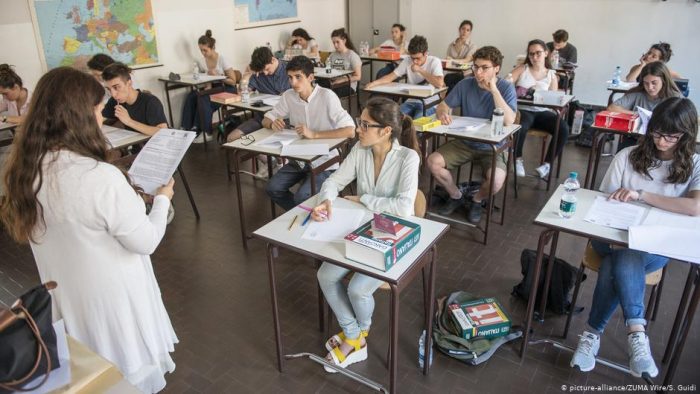Italy will become the first country to make lessons on climate change mandatory in schools. This is according to the Minister of Education Lorenzo Fioramonti. This will take effect following the summer holidays, as children return to class in September 2020. Their new program will include 33 hours, about one per school week, devoted to climate change and sustainable development.
This is a huge step for Italy. However, they are not alone. There are several countries that view these lessons as essential to all levels. When we think about schools, we usually think about things like math, science, reading, and writing first. These subjects are not all that schools teach, though they are essential to progress. Schools also teach the students how to be accountable for their effect on the environment and the world around them, not just for themselves.
Though such lessons may not be as traditional or common in a school’s curriculum, they are growing to be increasingly important. Here are some reasons why mandatory climate change classes are essential.

They Teach Us To Become Critical
Kids growing up today are set to face the worst of climate change. As dire warnings increase is urgency and seriousness from research scientists and indigenous peoples all over the world, many U.S. teachers still do not discuss climate change in the classroom. Fossil-fuel companies who reject the scientific climate consensus are advocating different for lessons.
Although educators are confronted by the scope, and controversy, of content related to climate change, it is also one of the great strengths of the subject. The reality is that climate change can be interpreted at local, global, and international levels — not to mention through scientific, political, and cultural lenses. These classes offer the opportunity for students to learn critical analytical skills and to synthesize knowledge.
By using research on climate change, schools have an opportunity to teach their students how to interpret a range of facts and draw their own conclusions. When students leave school to address issues head-on, learning how to use facts and reconcile opposing points of view will only them navigate the world with more success.
They Are Not Easy To Teach, But They Are In Demand
Educators are already facing pressure from topic-packed curricula requirements. They are being forced to teach students in a manner that will give them the best test scores. It’s easy to understand why some might refuse to teach climate change in this context. The climate change controversy is packed with a wide range of viewpoints, some of them in direct opposition to each other.
Nonetheless, with a topic is that so frequently talked about in today’s world, in the form of many varying opinions, it is a topic that should be discussed in today’s schools. A school’s job is to properly equip its students with the knowledge and skills necessary to function in the world around them. As such, ignoring pressing and widespread topics, like climate change, is a lost opportunity.
These Classes Teach Responsibility
Training on climate change provides a significant insight into individual and societal accountability. Schools have an interest in teaching subjects that will prepare students for jobs and give them good test scores. However, they also aim to teach them to be good citizens. Teaching climate change will help them learn how to be responsible people.
Climate education means teaching subjects such as environmental stewardship and collective responsibility. Teaching students that they have a duty to something greater than themselves is a very valuable lesson.

Conclusion
The global climate is challenging us to think of the world outside ourselves. This demands more conversations and more education, especially for the kids who will grow up to face dire climate consequences.
If you want to learn about other environmentally conscious countries, click here.
































